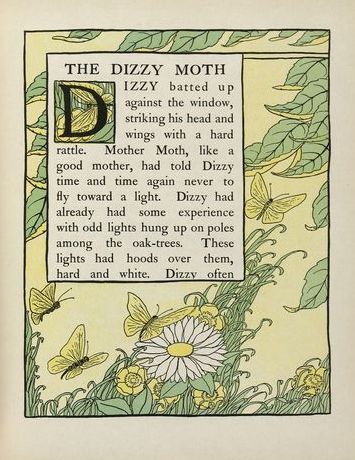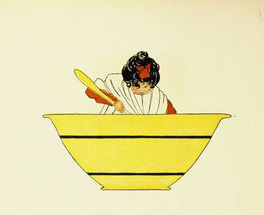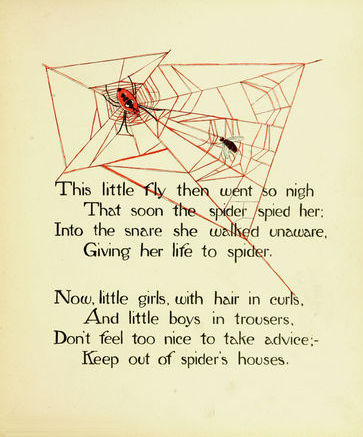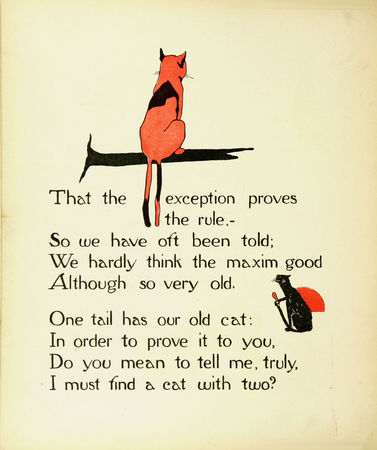Ordinary kids’ bicycles, as opposed to the motorized kind, haven’t gotten much attention in the CPSIA outcry. But they’re in trouble too. More: see April 6 update, including an informative CPSC submission (PDF) by Mayer Brown for the Bicycle Product Suppliers Association; and an upcoming meeting of the alarmed industry.
Archive for 2009
Beekeeping illegal in New York City
But there’s a romantic underground doing it anyway.
CPSIA chronicles, March 27

Short takes for the weekend:
- U.S. Rep. Jeff Fortenberry (R-Neb.) has introduced H.R. 1692, a bill to exempt ordinary books from the law’s lead limits; the American Library Association immediately endorsed the bill [ALA District Dispatch]
- Lead poisoning, the Law of Diminishing Returns, and the fanaticism of “zero” as a goal [Fenris Lorsrai] “Dangerous until proven safe” [Coyote Blog]
- The very popular style site Dooce gives the law a mention in a review of a handmade hippo wood teether;
- From Ed Driscoll/Pajamas Media, a new Silicon Graffiti video: “2009: A Book Banning Odyssey”. We get kindly mentioned.
- His company can comply with CPSIA and carry on as before. So why is he so upset? [Rick Woldenberg] And Darleen Click picks up on Woldenberg’s parody post-CPSIA toy “catalog” [Protein Wisdom]
- “It wouldn’t be fair ’cause everybody wants to ride”: Kids themselves, mostly ages 7-9, comment on the minibike ban [Valley News] Some thoughts on why much of the media began to “get” the off-highway-vehicle (OHV) ban before it started to realize the law’s implications for books, apparel, toys and so forth [Wacky Hermit]
- Could Canada be preparing to repeat some of the errors of CPSIA in its own law? Is someone alerting the folks in Ottawa to try to make sure that doesn’t happen? [ecoDomestica; Product-safety bill C-6 #CCPSA, successor to Bill C-52; Tim Holtorf, Tim & Zodi’s and followup]
- Just made my travel reservations for Washington, D.C. April 1; I’ll be observing the CPSIA rally on Capitol Hill. And you?
“Year Of Law School Now Mandatory For Nation’s 25-Year-Olds”
Uncomfortably funny, from The Onion.
March 27 roundup
- Find me someone who speaks Mixtecan, fast: under new California law health insurers must provide patients with certified language interpreters [Ventura County Star]
- “Law Prof’s Article on His Jury Experience Leads to Overturned Verdict” [ABA Journal]
- Quick, lock up the Internet: Harvard Law’s John Palfrey wants to unleash child-endangerment suits against online providers [Citizen Media Law]
- “Another Lesbian Visitation Case has Liberty Counsel Spouting Nonsense” [Ed Brayton; earlier Miller-Jenkins case]
- “Jury awards need to be fair, not lucrative” [Jackie Bueno Sousa, Miami Herald]
- Aussie strip club disagrees with exotic dancer on whether faulty pole caused her injury [Brisbane Courier-Mail]
- Hasbro nastygram over “Little Mr. Monopoly” use [Bob Ambrogi, Ron Coleman]
- No, “crash of ’09” doesn’t refute “capitalist system”, any more than “car wreck” refutes “auto-based travel”.
CPSIA: handing the GOP an issue?
 According to one of Rick Woldenberg’s sources, the leadership on Capitol Hill ordered a Democratic member “in no uncertain terms” not to address next Wednesday’s rally calling for legislative reform of the Consumer Product Safety Improvement Act of 2008. The bill was rushed to passage this year with overwhelming support from both parties; the public outcry in recent months has stirred proposals mostly but not entirely from Republicans for legislative relief.
According to one of Rick Woldenberg’s sources, the leadership on Capitol Hill ordered a Democratic member “in no uncertain terms” not to address next Wednesday’s rally calling for legislative reform of the Consumer Product Safety Improvement Act of 2008. The bill was rushed to passage this year with overwhelming support from both parties; the public outcry in recent months has stirred proposals mostly but not entirely from Republicans for legislative relief.
You’d think the Democrats would be smart enough to want to be perceived as listening to public outrage on this issue rather than letting the Republicans develop it as a source of partisan advantage. But apparently you’d be wrong.
P.S. Deputy Headmistress now has up a very interesting post on the partisanship/non-partisanship angle. The movement to protest and reform or repeal CPSIA, as she notes, is truly diverse ideologically, politically, and in almost every other way: it brings together persons of astoundingly disparate views and manners of living. On the other hand — as she demonstrates by citing particulars of the news coverage a year or two back — the maneuvering that got CPSIA passed in the first place was remarkable for its jealous partisanship, something easily overlooked in retrospect given the near-unanimous eventual vote in favor of the law.
Public domain image: Yankee Mother Goose (1902), illustrator Ella S. Brison, courtesy ChildrensLibrary.org.
“These are just kids being irresponsible and careless; they are not criminals.”
The ACLU says a Pennsylvania D.A. has threatened to prosecute teenage girls over mildly naughty-sounding photos of themselves on their cellphones, which he has called “provocative”. The case could help provoke a legislative clarification of what laws apply to the teenage practice that has been called “sexting”; one law professor suggests excusing original senders and recipients of photos from liability in most circumstances, while leaving open the possibility of penalties for resending to others.
New York med-mal lawyers reach for an Albany payday
And it’s a big one, buried in a state budget package: the lifting of two-decade-old restrictions on what they can charge clients. More: Point of Law.
CPSIA: one for the books
As Charles Henry and Carter Wood observe, Tuesday’s Washington Post article on the fate of vintage books is another sign that the CPSIA debacle is gradually edging into the attention zone of even the more highly placed members of the press.  Florida’s St. Petersburg Times also covered the book/library angle over the weekend, following earlier coverage by the Associated Press Mar. 17, and before that by the Fort Worth Star-Telegram, the Guardian (U.K.), Cincinnati Enquirer and elsewhere. (Other aspects of the law, similarly, have won sporadic rather than sustained attention at individual large papers, and none have yet broken through to the print columns of The Deaf Lady and thereby reached those who rely on her for their news agenda.)
Florida’s St. Petersburg Times also covered the book/library angle over the weekend, following earlier coverage by the Associated Press Mar. 17, and before that by the Fort Worth Star-Telegram, the Guardian (U.K.), Cincinnati Enquirer and elsewhere. (Other aspects of the law, similarly, have won sporadic rather than sustained attention at individual large papers, and none have yet broken through to the print columns of The Deaf Lady and thereby reached those who rely on her for their news agenda.)
If nothing else, the Washington Post story should lay to rest the still sometimes heard notion that no one is talking about banning many of these books or that everyone somehow favors broadly exempting vintage books, with the only real question being how to get there. Reporter Michael Birnbaum interviewed Columbia public health specialist David Rosner, known as a high-profile lead hawk and critic of any toleration of nonzero exposure risks (and also a recurring expert witness for plaintiff’s lawyers in lead litigation, in which role he puts in a cameo in this fine 2007 Joe Nocera column in, of all places, the NYT). Rosner quite unmistakably does not want older books exempted as a general matter and does want government to intervene against those that have detectable, even if infinitesimal, levels of lead in their ink. He dismisses as ignorant — unacquainted with “the latest science” — parents and booksellers who object that they grew up with these books, they turned out okay, etc. (In fact, “latest science” or no, scientists have by no means joined in the consensus Rosner aims to suggest; hence the remarks from Centers for Disease Control spokesman Jay Dempsey the other day that “On a scale of one to 10, this is like a 0.5 level of concern“).
Birnbaum also interviews a second high-profile lead hawk, Johns Hopkins public health professor and longtime regulatory activist Ellen Silbergeld, who takes a somewhat contrasting view more akin to CDC’s (dismissing the book issue as “very clearly not a high priority” in protecting children). But that’s not all: Silbergeld appears to associate herself with (otherwise unnamed) critics who “accuse the safety commission of trying to undermine the law by stirring up popular backlash”, calling the agency’s continued inability to resolve the issue “absurd” and “disingenuous”. The suggestion here, it would seem, is that the CPSC is purposefully sabotaging the law by accommodating, even in part and inconsistently, the views of one of its own two commissioners, Thomas Moore, who famously called for some share of older books to be “sequestered” — not to mention outsiders like Rosner whose views appear to follow similar lines. So now we’re apparently meant to go on a hunt for imagined wreckers and saboteurs at the agency, presumably including its key career staff.
Meanwhile, and fortunately, discussion continues among persons who care passionately about old books for their own sake and don’t want to see them lost. Well-known author Neil Gaiman remarked on the story on Twitter (“So wrong, so wrong, so utterly, utterly wrong“) which was passed along (“retweeted”) by hundreds of his readers and fans; many blog posts and discussions resulted. David Niall Wilson (“Glimpses Into an Overactive Mind”) contributed two passionate posts (“This idiocy has to be stopped”.)  The popular James Lileks, whose eponymous site is one of the most consistently diverting in American journalism, did a short column for the Minneapolis Star-Tribune, and the subject erupted in comments at Boing Boing. Some other discussions, all worth reading: Tim & Zodi (via Deputy Headmistress), Michael Lieberman at Book Patrol (also Wessel & Lieberman), Jennifer at Series Books for Girls (“this lead thing has not gone away. Don’t think for a minute that it has”), Vivian Zabel, Le Mars, Iowa, Daily Sentinel, Aria Nadii/Wild Muse Notes.
The popular James Lileks, whose eponymous site is one of the most consistently diverting in American journalism, did a short column for the Minneapolis Star-Tribune, and the subject erupted in comments at Boing Boing. Some other discussions, all worth reading: Tim & Zodi (via Deputy Headmistress), Michael Lieberman at Book Patrol (also Wessel & Lieberman), Jennifer at Series Books for Girls (“this lead thing has not gone away. Don’t think for a minute that it has”), Vivian Zabel, Le Mars, Iowa, Daily Sentinel, Aria Nadii/Wild Muse Notes.
And don’t forget the rally next Wednesday morning, April 1, in Washington, and covered by, among other places, Apparel News. Registration can be accomplished here. And Lahle Wolfe at About.com Women in Business Blog offers six (other) ways to protest the law.
Public domain images: Yankee Mother Goose (1902), illustrator Ella S. Brison, courtesy ChildrensLibrary.org.
Target of Milberg suit sues over Torkelsen testimony
Economist John Torkelsen, a star expert witness for Milberg Weiss in many cases, declared in a sworn deposition that he was working for an hourly fee in a case in which he estimated damages to class clients to be more than $165 million in one of Milberg’s cases against casino operator Lakes Entertainment. In reality, Torkelsen had a concealed contingency fee arrangement with Milberg that helped ensure his incentives would be lined up in favor of a high damages estimate. Now Lakes wants its settlement back with treble damages, saying it would never have offered such a high settlement had Torkelsen’s true relationship to the law firm been disclosed (cross-posted from Point of Law).
